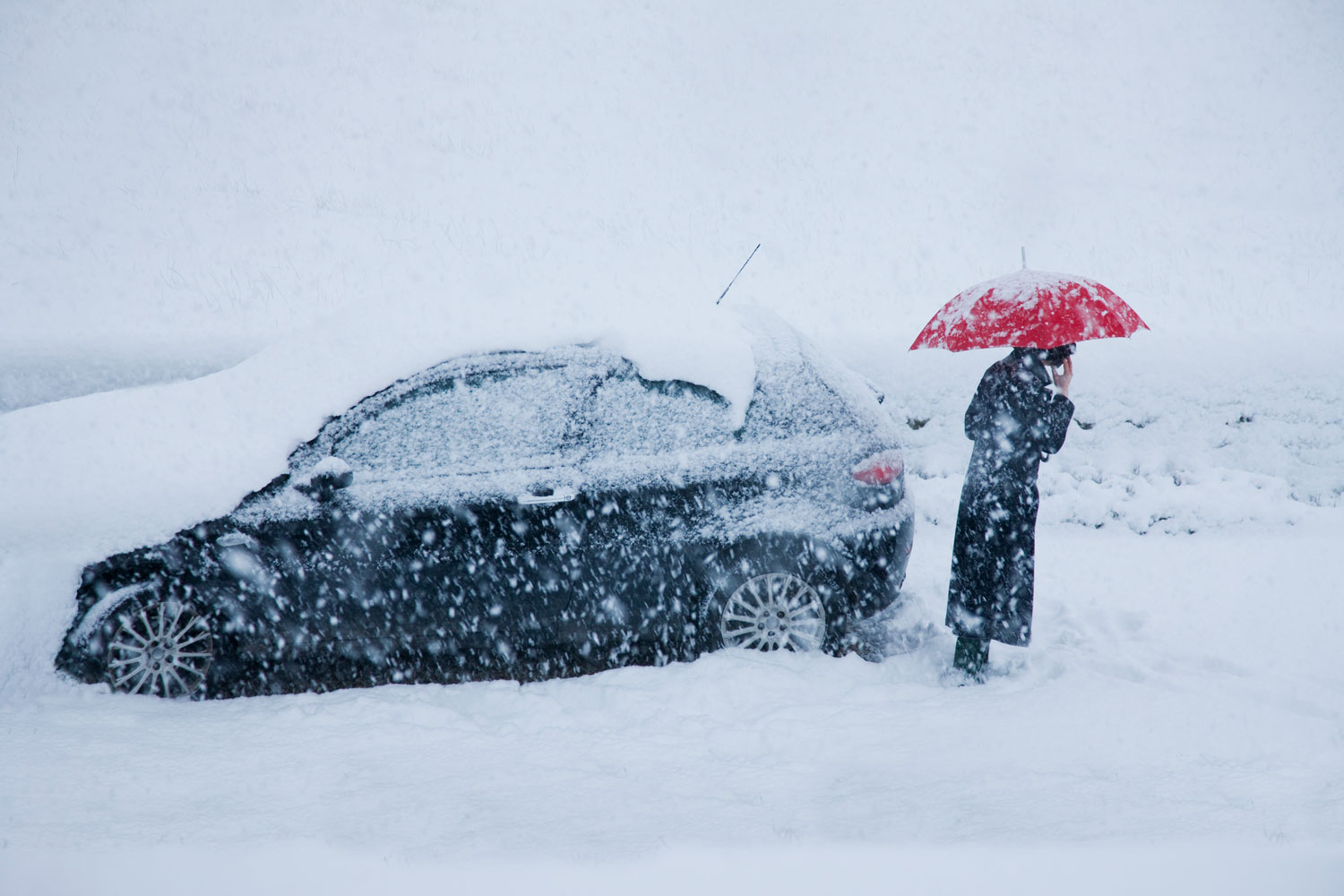How Does Cold Weather Affect Your Car?
Three tips for fighting back against winter's chill.
 Getty Images
Getty Images
Winter can be a challenging season for driving with cold weather, plenty of precipitation, and extra hours of darkness all coinciding on the road. Knowing how cold weather in particular affects your car can help you better prepare for low-temperature driving to improve your odds against getting stranded, crashing, or having to deal with an unexpected repair or problem with your vehicle.
Here are three primary ways the cold can stop your car, truck, or SUV dead in its tracks, and what you can do to prevent it from happening.
Cold Weather Battery Life Blues
All vehicles—including electric vehicles (EVs)—rely on 12-volt batteries to either crank their starter motor, and/or power accessories and electrical features such as climate control, lighting, and infotainment. Most 12-volt car batteries use lead-acid chemistry to generate electric current. In colder temperatures, this chemical reaction can slow to the point where the battery no longer has enough juice to start a vehicle or run its systems. Older batteries are more susceptible to the cold, so before winter it’s a good idea to have your battery tested if it's in the three- to five-year mark of its lifespan, otherwise replace it if it's older than that.
EVs that use different battery chemistry, such as lithium-ion, also suffer from a similar slowdown that can reduce their available range in cold weather.
Fluid Freeze-Ups
Fluids are particularly susceptible to freezing in cold weather. There are three main areas for concern as the winter season approaches.
The coolant circulating through a vehicle's motor is typically a mix of antifreeze and distilled water. As the name suggests, antifreeze (usually composed of ethylene glycol) lowers the freezing temperature of the coolant so that it can continue to circulate even during chilly conditions. You need to maintain a 50/50 ratio between antifreeze and water, with very cold climates requiring as much as a 70/30 ratio to prevent a freeze-up. Testing your coolant in the fall provides practical and easy insurance against a hassle down the road.
Engine oil is also susceptible to cold, thickening to the point where it can't squeeze through the passages necessary to lubricate a motor. This is particularly true at startup after sitting in the oil pan throughout a wintry night. Multiviscosity oils that flow at a high rate when cold, then expand to flow normally once they warm up, are necessary during the coldest months of the year.
Finally, windshield washer fluid is another prime freezing candidate. Make sure to fill your reservoir with fluid rated for the lowest temperature you will encounter during the season, and drain any summer-specific fluid before it has a chance to harden into ice.
Reduced Tire Grip
The rubber used to make high-performance summer tires and standard all-season tires can stiffen and harden in cold temperatures. This reduces grip even on clear pavement, which makes braking and steering more difficult. Winter tires use special rubber compounds that stay soft and sticky in extremely cold temperatures, and are the safest cold-weather choice.
Written by humans.
Edited by humans.
 Benjamin Hunting
Benjamin HuntingBenjamin Hunting is a writer and podcast host who contributes to a number of newspapers, automotive magazines, and online publications. More than a decade into his career, he enjoys keeping the shiny side up during track days and always has one too many classic vehicle projects partially disassembled in his garage at any given time. Remember, if it's not leaking, it's probably empty.
Related articles
View more related articles